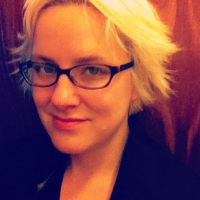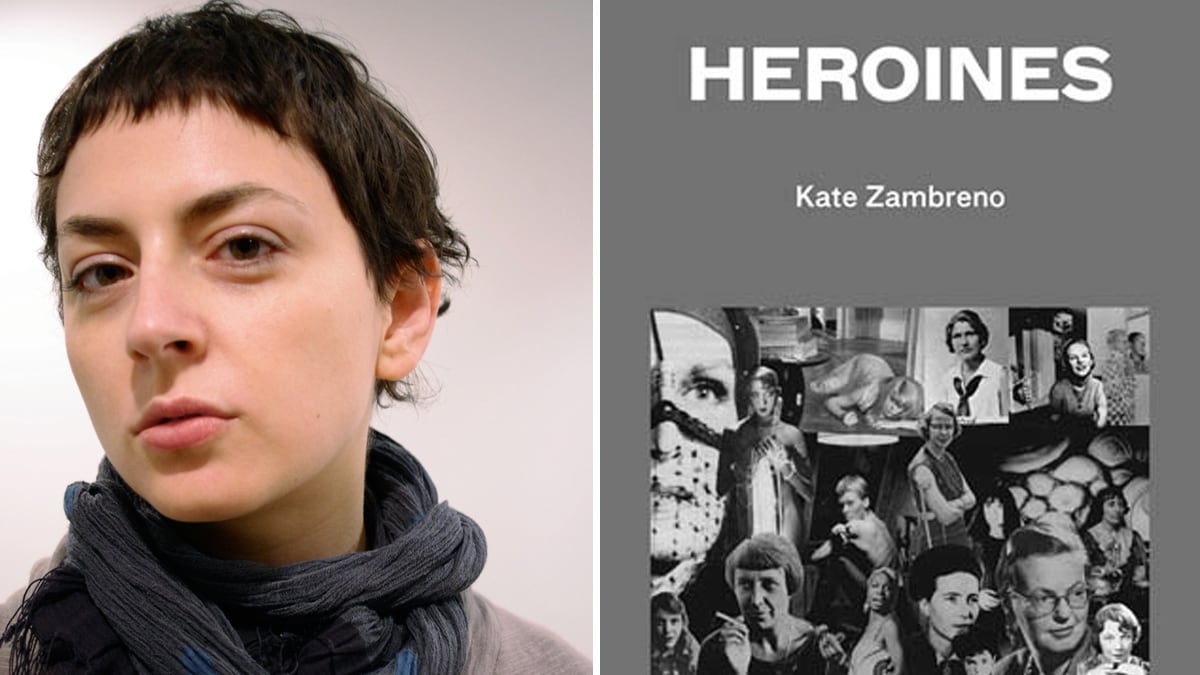I’ve been thinking about the notion of writer’s diaries, and how important they used to be, especially to the modernists, and how Tumblr/Twitter/Facebook have replaced diaries, in a way. In your book, you talk about how Rainer Maria Rilke’s The Notebooks Of Malte Laurids Brigge is read as great literature, quite deservedly. You also talk about women writers who have taken to the Internet to use social media to express themselves. Do you think these technological means of expression will be permanent? Will they have the same literary relevance diaries once did?

Many writers now keep blogs and Tumblrs as more public diary or notebooks—even scholars, like Lauren Berlant. There are some beautiful projects born on the Internet, like the work Masha Tupitsyn has done on Twitter or her micro-essays on love on her Tumblr, which will become a book. Whether people will be reading these blogs in the future has to do with a larger question of archiving and the Internet. I don’t know. Perhaps it is the ephemerality of the Internet that I find intriguing—maybe the notebooking done there is closer to performance.
It angers me that, in general, female diaries are considered less philosophical than male diaries. Do you think that notion has gone away, or is it just as present as it ever was?
I think it’s quite embedded in the way we read women, versus men. That’s what I really wanted to explore in Heroines—how the myths of modernism haunt our present, the way we read and consider literature. I think the dismissal of girls’ diaries comes through in the way works by women writers that come from a place of autobiography are reviewed—like James Wood’s dismissing review of Sheila Heti’s novel in The New Yorker. As a counterpoint, think of how Wood rapturously reviewed Ben Lerner’s Leaving the Atocha Station, although both works are somewhat in the mode of a notebook or diary, both deal with coming-of-age, after Rilke. I think this has to do with a larger issue of why female novelists are dismissed when they draw from their life, which I circle around while detailing the feud between the Fitzgeralds when Zelda chose to take her life as her own material in her novel Save Me the Waltz—Zelda, whose diaries Scott had drawn from in previous works, Scott dismissing Zelda for her “true confessions,” dismissing her writing as “automatic writing.” The diary is seen as raw, emotional, not fully formed, just like the girl. I write in Heroines: “The disgust for Anaïs Nin is a disgust for the girls with their LiveJournals.”
You talk a lot about the “toxic girl” in this book—even describing yourself as one earlier in your life. You also talk about how so many of the modernists’ wives—Zelda Fitzgerald and Vivienne Elliot and Jane Bowles—suffered from mental illness. Would you use the same expression to describe male writers who suffer from neuroses or mental illnesses?
When I am writing about my days as a “toxic girl,” I’m writing about a period of fucking up, of being adrift, a period that was pathologized for me. We should be allowed to be unsympathetic characters, to be screw-ups, without it always being translated for us as mental illness. Vivienne Eliot and Jane Bowles were nervous girls, although they came of age amidst Victorian ideas of moral insanity, which seemed to punish any girls seen as being “bad,” even their bodies rebelling by maturing early. Zelda was a flapper, an object, not yet her own author, but it wasn’t until she was seen as being too consumed by her ballet, and then her writing practice, and abandoning her roles as mother and daughter that she was labeled schizophrenic, which had to do with ego and abandoning social roles, a much different, more catch-all diagnosis than now. I like Hermione Lee’s chapter on illness in her bio of Woolf where she writes that if we label Woolf with mental illness we are falling into the trap of echoing the language of her often-incompetent doctors.
One of the things you point out is how the modernists were big into myth making. They mythologized and promoted themselves. Do you see that happening in contemporary literary culture?
Yes, I think some spaces and journals online are mimicking the myth making of the little magazines.
What can women writers do to engage the men who are resistant to reading books by female writers? How can we convince them to give female writers a chance?
Refuse to fuck them? Can I say that on The Daily Beast? I mean, there’s still a lot of sexism in terms of the values we assign such as “great” or “major” versus “minor” literature—it’s important to combat it.
You say: “It is so exhausting sometimes to defend my women writers, my compatriots in this dark, doomed country of ours. For we are not full citizens. We are forever caught without our papers.” I interviewed Junot Diaz recently, and he talked about a similar thing but in the context of genre writers and literary writers who are writing genre. Do you think genre writers and female writers experience the same bias?
No, it’s not the same bias. But certainly we have all these hierarchies of what is considered great literature, and the canon can be dictatorial. But that passage, where I’m talking about defending Jean Rhys to my students—is about a history of dismissal and alienation.
In Heroines, you often relate to the modernists’ wives, who were trapped and discouraged from being the artists they were. You talk a lot about being a wife and the limits that come with it. Even though it’s very clear that you love your husband, you talk about wanting to have affairs, about wanting to be free. How did your husband react to this book? How difficult was it to write about something so fiercely personal?
My partner John has always been a first reader and co-conspirator on my projects, this one especially. He read versions of this project for years. I think the difficulty of writing the personal can often be when readings of the work focus only on the personal.
How are today’s female writers similar to Zelda, Vivienne, Virginia Woolf, and other female writers who came before them?
I don’t know. But I will say that Virginia Woolf would have hated being compared to Vivienne! Although there were certain similarities between them—in Heroines I imagine Vivienne as a sort of Shakespeare’s Sister of the Bloomsbury set.
Tell me how this book came about. Did you originally set out to write a blend of memoir and literary criticism?
About nine years ago I began taking copious notes on first the more “minor” and forgotten women writers of modernism—Olive Moore, Anna Kavan, Jean Rhys, Jane Bowles—and then went to the biographies of the famous mad wives. This intertwined with my early apprenticeship as a writer, to borrow from Woolf, which existed for several years in an intense notebooking process. I documented coming to writing—while feeling possessed and obsessed with these wives, their lives.
At one point you say: “Sometimes it seems impossible to be real friends with other women writers, we are all such trainwrecks, messes, it seems, but sometimes it seems impossible to be real friends with other women who do not identify primarily as writers.” Do you think this can’t be the case for men too? Is this uniquely a very female concept?
I think I was speaking for myself specifically. I’m not sure this is uniquely a female concept, although certainly the idea of women being isolated from each other, especially within marriages, is something that has happened for a while, was one of the conversations around consciousness-raising in the Second Wave.
Who are some of the most daring and brilliant contemporary female writers?
Oh! Too many to name here. Bhanu Kapil. Danielle Dutton. Chris Kraus.






